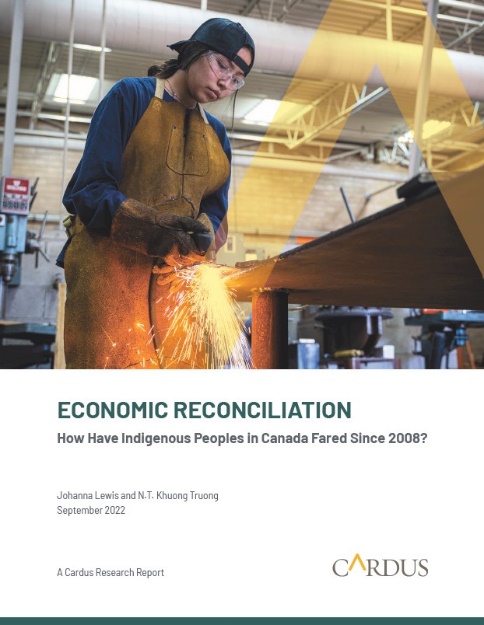Indigenous Economic Reconciliation Deserves New Attention
Report finds little progress in closing Indigenous economic and employment gaps with other Canadians
FOR IMMEDIATE RELEASE
September 15, 2022
OTTAWA, ON – Canada has made precious little progress on Indigenous economic reconciliation since the federal government apology in 2008 for Indian Residential Schools, according to a new report from Cardus.
Several of the Truth and Reconciliation Commission's 94 calls to action refer to the need for Indigenous economic progress. Yet, the economic and employment gap between Indigenous people and the rest of Canada barely budged between 2008 and 2020.
- At 77.4%, the Indigenous labour force participation rate is essentially unchanged since 2008 and is 9% lower than it is for non-Indigenous Canadians.
- In 2008, the average Indigenous person working 50 weeks each year was putting in 35 hours more than the average non-Indigenous worker but earning $3,219 less annually. By 2020, that Indigenous worker was working an average of 20 hours more than non-Indigenous Canadians and making about $3,339 less.
- Indigenous people in Canada are more than twice as likely as other people to be in the poorest 10% of Canadians.
Education was one of the few bright spots in the Cardus report. Between 2006 and 2016, the proportion of Indigenous Canadians holding a high school diploma, apprenticeship certificate, college diploma, or bachelor’s degree or higher all increased. The proportion of those without any of these fell by seven to eight percentage points.
“Our paper raises serious questions about the disappointing lack of progress on economic reconciliation in Canada,” says Renze Nauta, Work & Economics Program Director at Cardus. “We’re setting the table for governments, employers, and all Canadians to refocus on helping First Nations, Inuit, and Métis communities close the economic and employment gap with the rest of the country.”
To read Economic Reconciliation: How Have Indigenous Peoples in Canada Fared Since 2008? visit Cardus online.
-30-
MEDIA INQUIRIES
Daniel Proussalidis
Cardus – Director of Communications
613-899-5174
media@cardus.ca
ABOUT CARDUS
Cardus is a non-partisan think tank dedicated to clarifying and strengthening, through research and dialogue, the ways in which society's institutions can work together for the common good.


